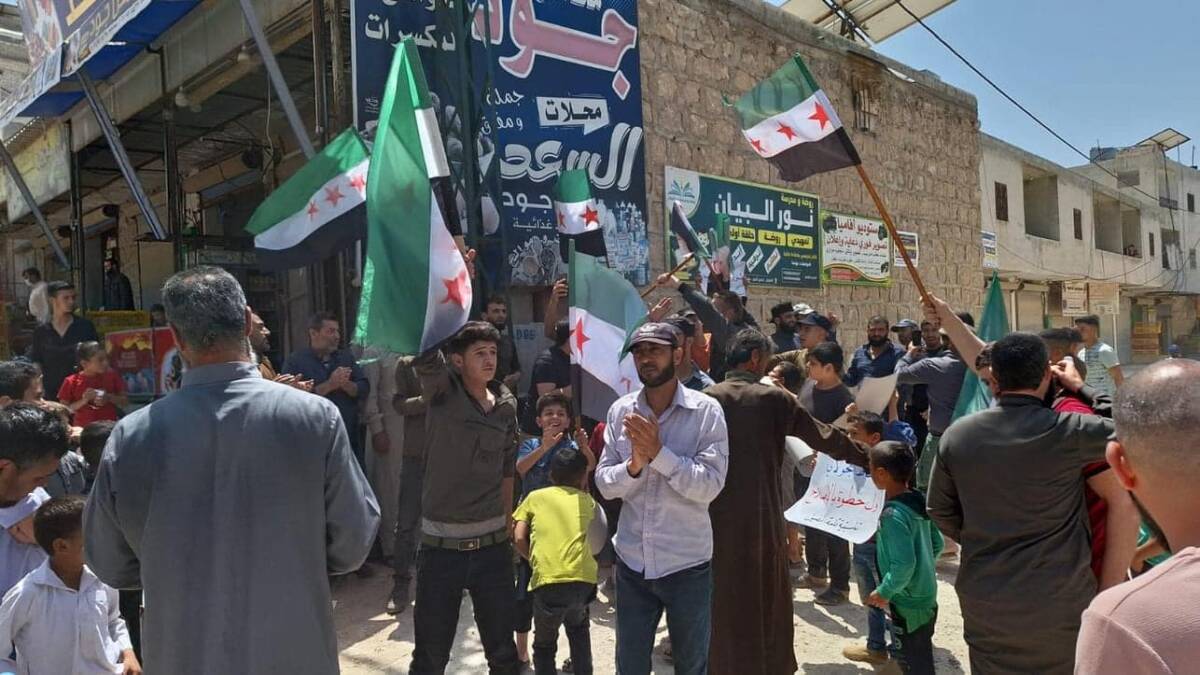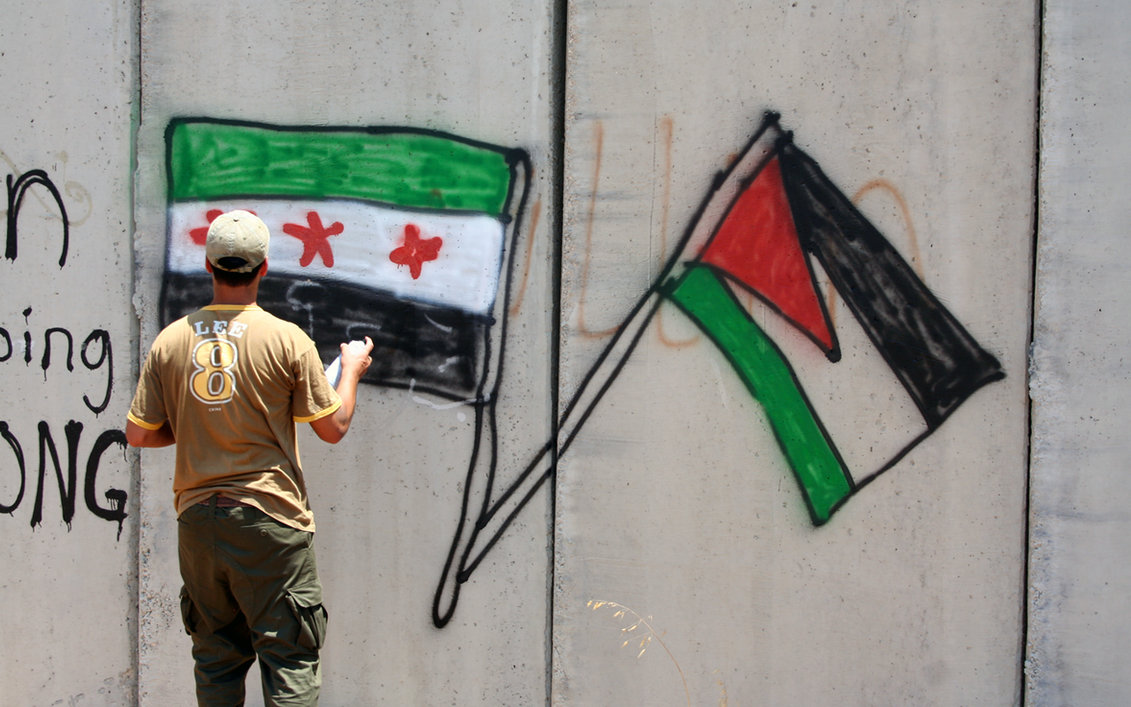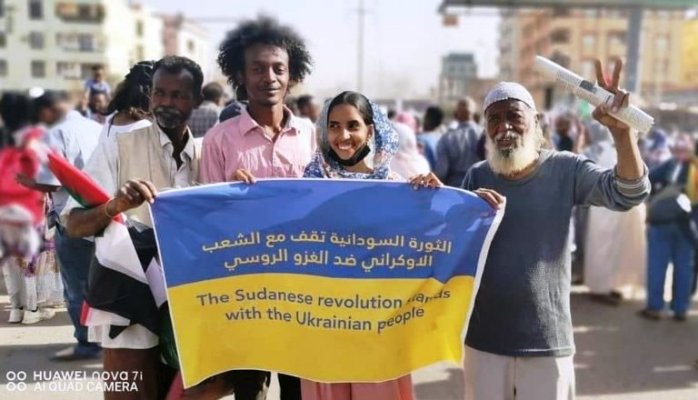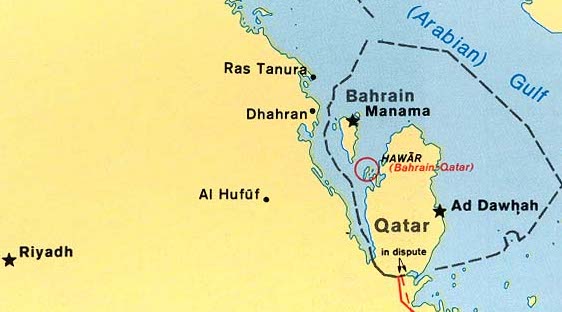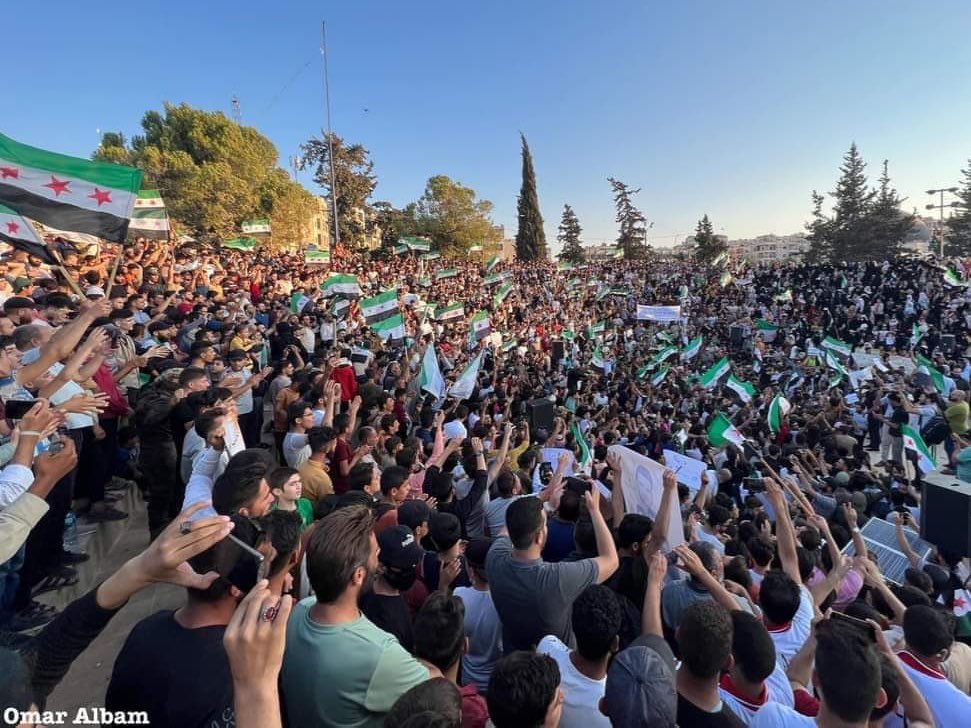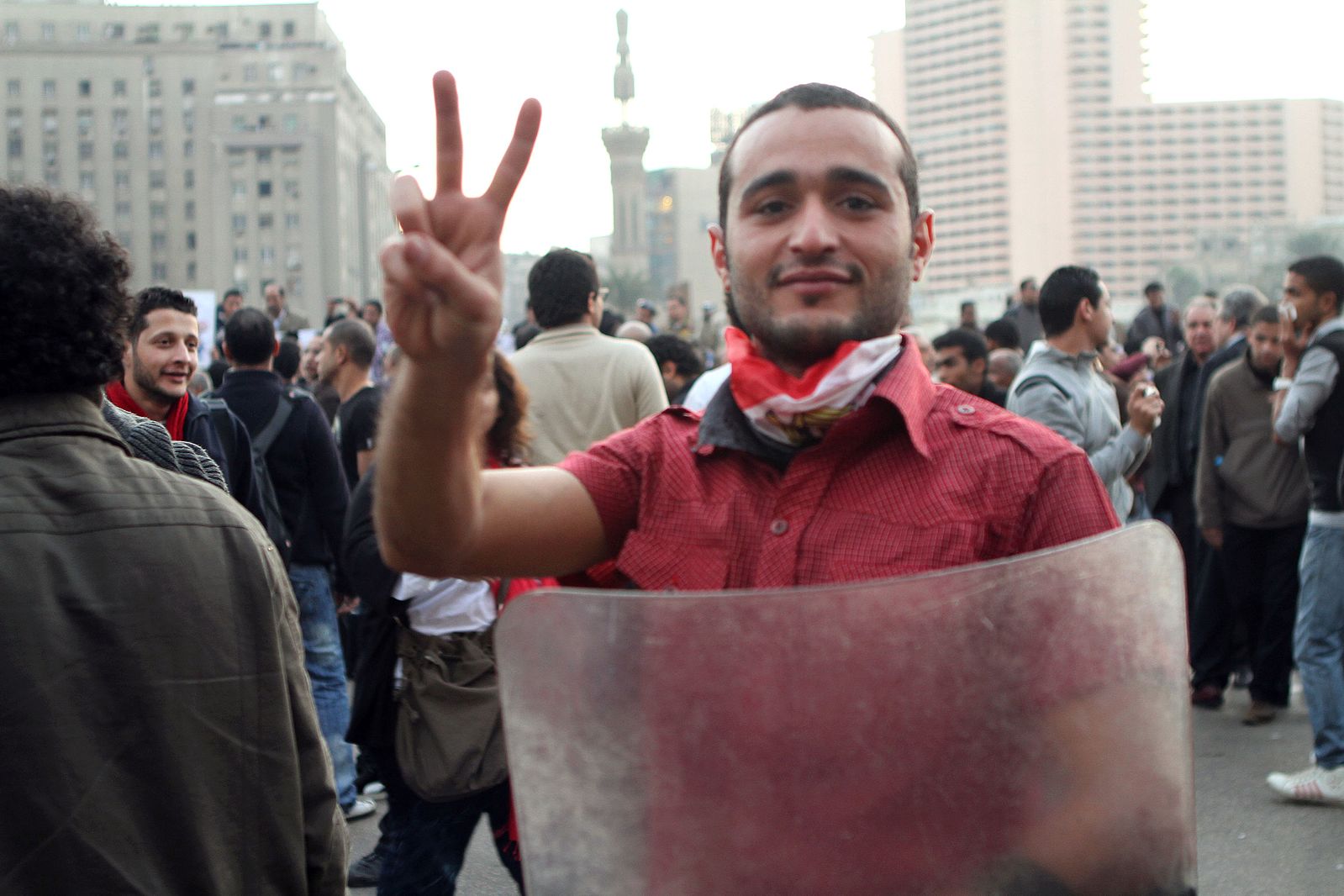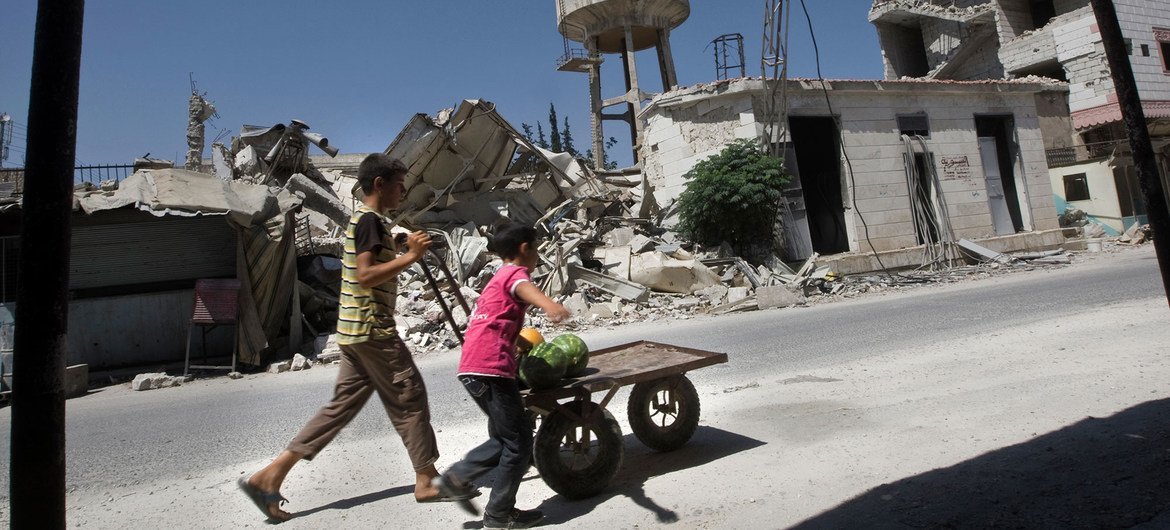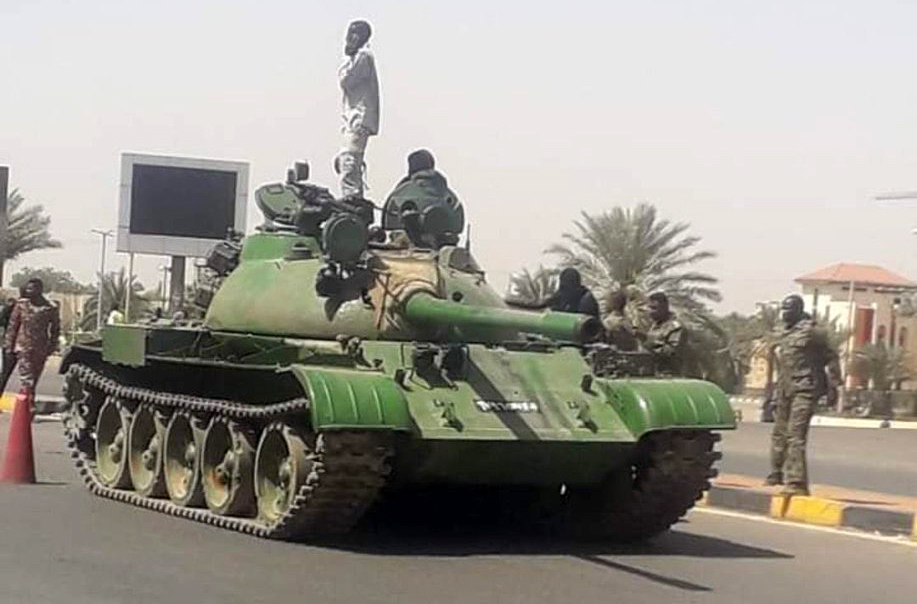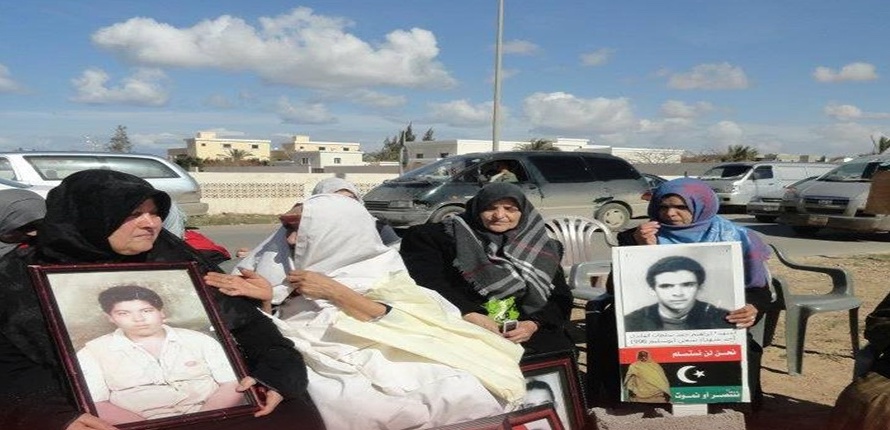
Survivors of Libya prison massacre demand justice
A group representing families of the victims of Libya’s Abu Salim Prison Massacre protested in Tripoli on the 28th anniversary of the killings, decrying the failure to achieve justice in the case. The association urged “that the secrets of the crime be revealed, justice be established, retribution be imposed, and that everyone who participated in this horrific massacre receive their deserved punishment.” Thirteen years after the fall of Libyan dictator Moammar Qaddafi’s regime, there has still been no legal judgment or even serious investigation in the case. It is believed that over 1,000 were killed by prison guards in the 1996 incident, sparked by an inmate protest over poor conditions. (Photo: Libya Observer)



